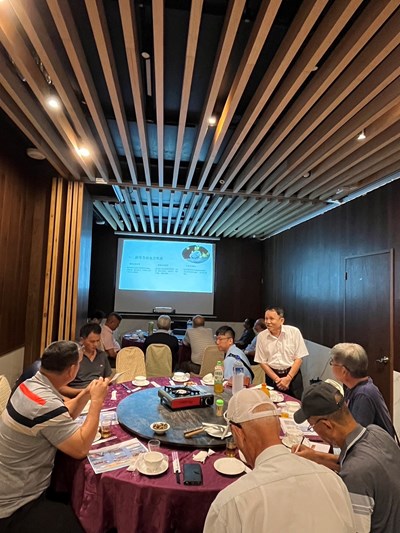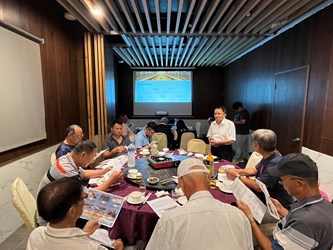
Highly pathogenic avian influenza virus subtypes H7N9 and H7N5 have recently been discovered at chicken farms in Australia, and subtype H5N1 has been detected in dairy cows in the US. This is a further warning that this virus is a threat to all of the world's countries. To prevent the spread of major diseases of poultry and strengthen disease prevention knowledge and biosafety measures among Taichung's poultry raisers, the Animal Protection and Health Inspection Office held the "Taichung City 2024 3rd Major Poultry Disease and Biosafety Awareness Meeting" on the morning of August 12. At this event, veterinarian Chen Hung-ming spoke on the subject of "Commonly seen diseases of layer chickens."
During the course of the awareness session, the speaker described the pathogen transmission pathways, typical age of occurrence, common clinical symptoms, and prevention methods for the most common diseases of layer chickens. The speaker's mixture of practical experience and useful theory included instructions on how to observe serum antibodies in individual chickens and whole flocks, and how this can be used to adjust farms' vaccination plans, achieving the goal of disease prevention. As a result, the poultry raisers attending this event obtained great benefit.
To prevent heat stress and mosquito-borne diseases in chickens during the hot and humid weather of the summer months, following the meeting, the Health Inspection Office urged chicken raisers to increase ventilation at their farms and reduce levels of disease-vector mosquitoes. The Health Inspection Office also reminded raisers to comply with the requirements of the "H5, H7 Subtype Avian Influenza Prevention Measures," including such biosafety measures as maintaining wild bird prevention measures, controlling entry, and performing disinfection. The "Poultry Farm Biosafety" fliers provided to poultry raisers after the meeting provide a useful guide to effective disease prevention.

 Facebook
Facebook
 Twitter
Twitter
 LINE
LINE
